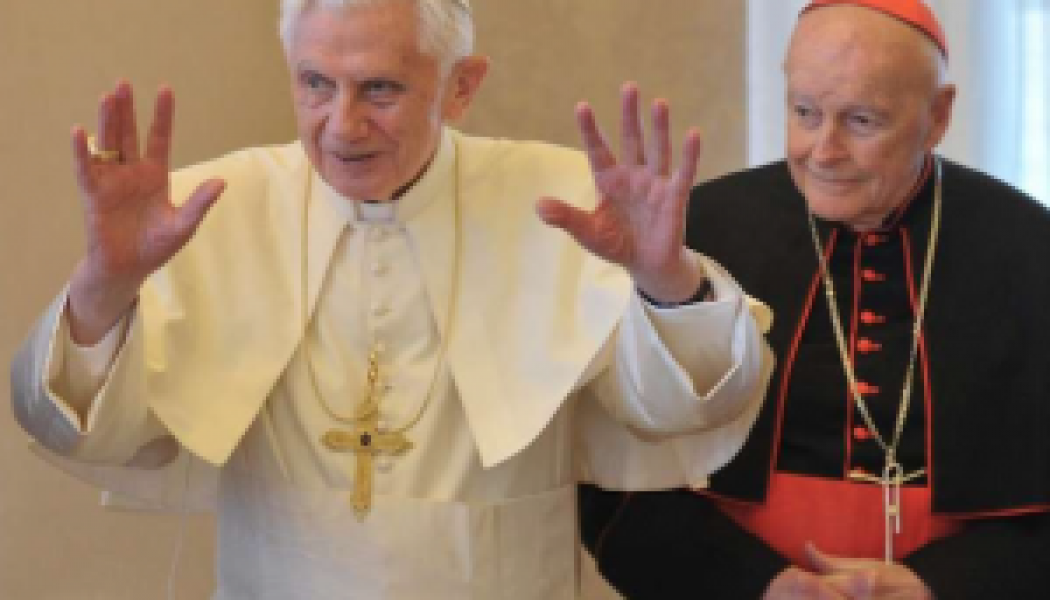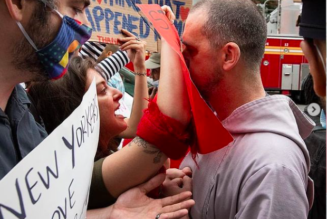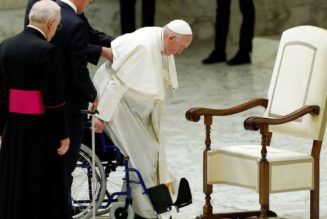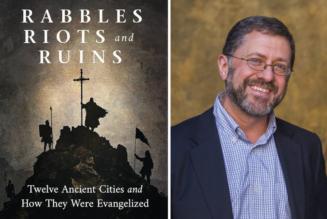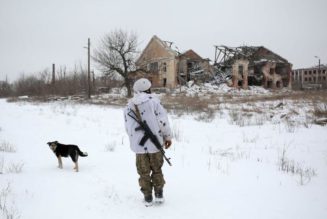
> Italiano
> English
> Español
> Français
> All the articles of Settimo Cielo in English
*
More and more each day, the “Report” on the case of former cardinal Theodore McCarrick published on November 10 by the secretariat of state looks like an unprecedented innovation, with a powerful impact on the present but also on the future of Vatican communication:
> History-making report sets a precedent the Vatican can’t walk back
Never before in clarifying a hot-button issue in Church life at the highest levels – and largely involving figures still living and active – had the Holy See lifted the veil on such an imposing mass of confidential proceedings and documents, plus almost a hundred testimonies collected “ad hoc,” including that of the reigning pope.
The author, or authors, of such an enterprise also mark a break. They are certainly not the current Vatican information brokers, who are clearly inept, but must be sought across the Atlantic, in the attorney Jeffrey Lena and his team of associates. Lena lives in Berkeley, California, but has an insider’s understanding of the Vatican. In court he has repeatedly and successfully defended the Holy See from the threat of criminal liability for sexual abuse committed by Catholic clergy in the United States.
The result is that this “Report” is also a rich collection of stories, for those who may wish to explore it. And of stories that in some cases are surprisingly linked to current events.
Suffice it to mention one of these here, starting with an aside from McCarrick reported in a footnote on page 276 of the “Report.”
We are back in 2008, and for two years Cardinal McCarrick has no longer been archbishop of Washington. He has resigned “spontaneously,” in reality under pressure from Benedict XVI, who has also asked him to “keep a low profile and reduce travel to the minimum.” All this because of his ongoing homosexual activity with seminarians and young priests, which had come to the attention of Vatican authorities.
McCarrick, however, continues to travel nonstop, to hold conferences, give interviews, preside over ceremonies, accept awards, raise funds, hold important positions, celebrate and concelebrate Masses in public.
And what does he say to a New York couple that has asked him to officiate at their wedding? That yes, he would have done so willingly, but without letting city’s archbishop find out and stopping by only briefly at the reception, in accordance with requests from Rome that he not appear in public, because – he explains – “Pope Benedict XVI had never pardoned him over the question of communion, and was essentially sending him into retirement.”
The “question of communion” was by no means the real reason for the measures against him. But McCarrick had quite a lark trumpeting it about and playing the victim. To understand the reason for this one must go back to pages 197 and following of the “Report.”
This time we are back in 2004, when McCarrick is at the height of his career. He is archbishop of Washington and cardinal, and heads the commission for “domestic policy” of the United States bishops’ conference. A key role, because 2004 is also the year of the presidential election, and the Democratic party candidate for the White House is John Kerry, who is a practicing Catholic but is also a staunch supporter of abortion as a constitutional right.
For this reason some of the bishops, including the archbishop of Saint Louis at the time, Raymond L. Burke, had argued that Kerry should be denied Eucharistic communion. A very heated discussion had arisen, with the majority of bishops instead in favor of giving communion, and the uproar had even reached Rome, coming to the attention of then-prefect of the congregation for the doctrine of the faith Cardinal Joseph Ratzinger.
So in mid-June, when the bishops’ conference of the United States met for its plenary assembly in Denver, Ratzinger sent to then-president of the conference Wilton Gregory – the very one whom Pope Francis would install in Washington in 2019 and make cardinal in 2020 – and to McCarrick as head of the commission for “domestic policy” a note on “general principles” that would lead to the denial of communion for Catholic politicians who systematically campaign for abortion.
The note clashes with the “Interim reflections” offered to the assembly of bishops by the “task force” over which McCarrick presided. Who lashed out in the assembly against those who “turn the sacred nature of the Eucharist into a partisan political battleground.”
But the final document approved by the assembly on “Catholics in political life,” while making room for a “prudential judgment” on whether or not to give communion, allows Ratzinger to write, in a subsequent letter of July 9, that it is “very much in harmony” with the general principles recalled in his note, within the limits of which a prudential judgment must be elaborated.
But in the meantime, what became of Ratzinger’s note? McCarrick did all he could out to keep it a secret. It was read in the assembly but not distributed or put on record, nor was it ever published afterward by the American episcopal conference or the Holy See. The bishops who had the text could be counted on the fingers of one hand. But one of these sent it to Settimo Cielo and its twin blog “www.chiesa,” which on July 3 published it in its entirety, both in the original English and in Italian.
The “Report” gives a summary account of this incident, which however does not by any means appear to be confined to the past, because Joe Biden as well, the Democratic party candidate who won the race for the White House in the presidential election of 2020, is a Catholic and a supporter of the right to abortion. And he too was denied communion last October, in a church in Florence, South Carolina, by a priest who afterward was firmly defended, once again, by Cardinal Burke. And even a more moderate cardinal like New York archbishop Timothy Dolanexpressed his understanding for that priest, while saying he was ready to give communion to Biden, just as in 2004 the authoritative “neoconservative” cardinals Avery Dulles and Francis George had admitted that a “prudential judgment” could be in favor of communion.
In any case, it should be noted that the “general principles” reaffirmed by Ratzinger in 2004 have coexisted for years in Italy and in Europe – outside the United States and its stormier conflicts – with a more flexible practice, even at the highest levels of Church and with popes quite adamant on this matter such as John Paul II.
For example, on January 6, 2001, at the concluding Mass of the Jubilee, John Paul II personally gave communion to Francesco Rutelli, a practicing Catholic and center-left prime minister for the elections scheduled for that year in Italy, but also a historic “pro-choice” militant on abortion issues.
And when in 1990 the very Catholic Baudouin of Belgium temporarily resigned as king so as to avoid signing the abortion law, that decision was entirely spontaneous. No one in the Church hierarchy had asked him to do so.
Today the question of communion may be surfacing again in Argentina, where President Alberto Fernandez, a Catholic, is pushing for “legal, free, and safe” abortion, running up against opposition from the episcopal conference, which is accusing him of wanting to conduct “what Francis calls ideological colonization.”
But getting back to Ratzinger’s note of 2004, here it is republished, relevant as always.
*
WORTHINESS TO RECEIVE HOLY COMMUNION. GENERAL PRINCIPLES
by Joseph Ratzinger
1. Presenting oneself to receive Holy Communion should be a conscious decision, based on a reasoned judgement regarding one’s worthiness to do so, according to the Church’s objective criteria, asking such questions as: “Am I in full communion with the Catholic Church? Am I guilty of grave sin? Have I incurred a penalty (e.g. excommunication, interdict) that forbids me to receive Holy Communion? Have I prepared myself by fasting for at least an hour?” The practice of indiscriminately presenting oneself to receive Holy Communion, merely as a consequence of being present at Mass, is an abuse that must be corrected (cf. Instruction “Redemptionis Sacramentum,” nos. 81, 83).
2. The Church teaches that abortion or euthanasia is a grave sin. The Encyclical Letter Evangelium vitae, with reference to judicial decisions or civil laws that authorise or promote abortion or euthanasia, states that there is a “grave and clear obligation to oppose them by conscientious objection. […] In the case of an intrinsically unjust law, such as a law permitting abortion or euthanasia, it is therefore never licit to obey it, or to ‘take part in a propoganda campaign in favour of such a law or vote for it'” (no. 73). Christians have a “grave obligation of conscience not to cooperate formally in practices which, even if permitted by civil legislation, are contrary to God’s law. Indeed, from the moral standpoint, it is never licit to cooperate formally in evil. […] This cooperation can never be justified either by invoking respect for the freedom of others or by appealing to the fact that civil law permits it or requires it” (no. 74).
3. Not all moral issues have the same moral weight as abortion and euthanasia. For example, if a Catholic were to be at odds with the Holy Father on the application of capital punishment or on the decision to wage war, he would not for that reason be considered unworthy to present himself to receive Holy Communion. While the Church exhorts civil authorities to seek peace, not war, and to exercise discretion and mercy in imposing punishment on criminals, it may still be permissible to take up arms to repel an aggressor or to have recourse to capital punishment. There may be a legitimate diversity of opinion even among Catholics about waging war and applying the death penalty, but not however with regard to abortion and euthanasia.
4. Apart from an individuals’s judgement about his worthiness to present himself to receive the Holy Eucharist, the minister of Holy Communion may find himself in the situation where he must refuse to distribute Holy Communion to someone, such as in cases of a declared excommunication, a declared interdict, or an obstinate persistence in manifest grave sin (cf. can. 915).
5. Regarding the grave sin of abortion or euthanasia, when a person’s formal cooperation becomes manifest (understood, in the case of a Catholic politician, as his consistently campaigning and voting for permissive abortion and euthanasia laws), his Pastor should meet with him, instructing him about the Church’s teaching, informing him that he is not to present himself for Holy Communion until he brings to an end the objective situation of sin, and warning him that he will otherwise be denied the Eucharist.
6. When “these precautionary measures have not had their effect or in which they were not possible,” and the person in question, with obstinate persistence, still presents himself to receive the Holy Eucharist, “the minister of Holy Communion must refuse to distribute it” (cf. Pontifical Council for Legislative Texts Declaration “Holy Communion and Divorced, Civilly Remarried Catholics” [2000], nos. 3-4). This decision, properly speaking, is not a sanction or a penalty. Nor is the minister of Holy Communion passing judgement on the person’s subjective guilt, but rather is reacting to the person’s public unworthiness to receive Holy Communion due to an objective situation of sin.
[N.B. A Catholic would be guilty of formal cooperation in evil, and so unworthy to present himself for Holy Communion, if he were to deliberately vote for a candidate precisely because of the candidate’s permissive stand on abortion and/or euthanasia. When a Catholic does not share a candidate’s stand in favour of abortion and/or euthanasia, but votes for that candidate for other reasons, it is considered remote material cooperation, which can be permitted in the presence of proportionate reasons.]
————
(s.m.) In the meantime, at the hands of Pope Francis, things have changed on two points in this note by Ratzinger from sixteen years ago. In one case with tightening and in another with loosening. Capital punishment is no longer permitted and communion for the divorced and remarried is permitted. But the “focus” of the note remains intact, on communion for pro-abortion politicians.
.
Join Our Telegram Group : Salvation & Prosperity
